In the News | Older
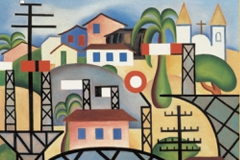 |
In the NewsMarch 22, 2016Brazil's crisis momentMIT NewsBrazil has been much touted in the 21st century as a fast-rising “BRIC” country (Brazil, Russia, India, China) spurring global growth. But a sprawling political corruption scandal and economic turmoil have cast shadows on this once-sunny landscape. President Dilma Rousseff faces impeachment hearings over potentially misappropriating bank funds for the state, and former president Luiz Inácio Lula da Silva is implicated in a corruption case. Ben Ross Schneider, the Ford International Professor of Political Science and director of the MIT-Brazil Program, has been studying Brazil for decades and is the editor of a new volume on the country: “New Order and Progress: Development and Democracy in Brazil,” published this month by Oxford University Press. (The book stems in part from connections forged through the MIT-Brazil Program.) Schneider talked with MIT News about the progress and setbacks Brazil is experiencing. |
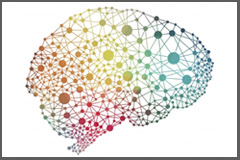 |
In the NewsFebruary 23, 2016It's all in our headsMIT NewsPolitical science PhD student Marika Landau-Wells is using psychology and neuroscience to better understand political behavior. A typical political scientist is not likely to develop a research plan that employs data from national archives, survey experiments, public health data, and an fMRI study in a single dissertation. But then, Marika Landau-Wells is not your typical political scientist. |
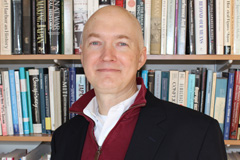 |
In the NewsDecember 2, 2015Geography critical factor in US-China rivalryThe Korea HeraldScholar says China may still face enormous disadvantages in potential South China Sea conflict against US. |
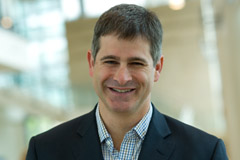 |
In the NewsNovember 19, 2015Q&A on International Policy LabMIT NewsIPL faculty lead describes the project's origins and invites proposals for lab-funded policy research projects. |
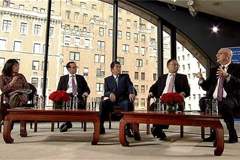 |
In the NewsSeptember 11, 2015Power plays in Asia Pacific 70 years after WWIINHK World "Global Agenda"What should Japan do to enhance stability and prosperity in Asia-Pacific? What shouldn't it do? As the U.S. continues its "pivot" towards Asia, what does the Obama administration expect from Japan? China is increasing its presence across Asia, and challenging U.S. power in the region—what are its hopes for the future? Experts from Japan, China, and the U.S. discuss the best way forward for Asia, and how to bring it about. |
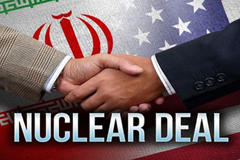 |
In the NewsJuly 24, 2015US Iran nuclear dealPeter DizikesMIT NewsMIT has long been a leader in the scholarly study of nuclear security. With the announcement of a major new nuclear agreement between the U.S. and Iran this month — subject to government approval in each country — MIT News asked several of the Institute’s experts on this vital issue to evaluate the pact and its larger implications. |
 |
In the NewsJune 29, 2015US, Iran, and terrorismNozhan EtezadosaltanehIranian DiplomacyInterview with Alessandro Orsini, Director of the Center for the Study of Terrorism at the University of Rome "Tor Vergata" and Research Affiliate at the Center for International Studies at the Massachusetts Institute of Technology. |
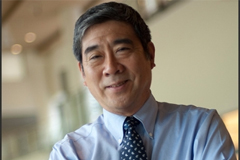 |
In the NewsMay 18, 2015'Homemade' opiatesPeter DizikesMIT NewsWriting in the journal Nature Chemical Biology, researchers at the University of California at Berkeley have announced a new method that could make it easier to produce drugs such as morphine. Political scientists Kenneth Oye and Chappell Lawson of MIT, along with Tania Bubela of Concordia University in Montreal, authored an accompanying commentary about the regulatory issues involved. Oye answered questions on the subject for MIT News. |
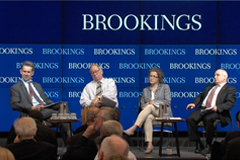 |
In the NewsMay 13, 2015Armenians and the legacies of World War IBrookings InstituteThis year marks the centenary of the atrocities perpetrated against the Armenian people of the Ottoman Empire during World War I by the governing Committee of Union and Progress. Most scholars and many governments consider these horrific events––in which more than one million people were systematically massacred or marched to their deaths––to constitute the first modern European genocide. |
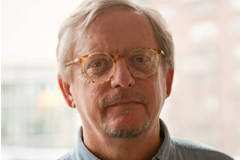 |
In the NewsMay 3, 2015Culture clashPeter DizikesMIT NewsImmigration policy has been among the most rancorous of U.S. political issues in recent years. What has been fueling America’s contentious debates over the topic? Security, according to many people: In the time since the terrorist attacks of Sept. 11, 2001, keeping borders secure has been a main justification for tightly controlled immigration. But underneath those concerns lies a simmering cultural clash, according to one MIT scholar who has been studying the topic in depth recently. |
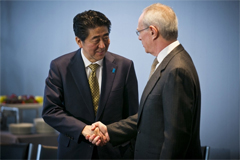 |
In the NewsApril 27, 2015Japanese Prime Minister Shinzo Abe visits MITPeter DizikesMIT NewsPrime Minister Shinzo Abe of Japan visited MIT Monday morning as part of his weeklong trip to the U.S., participating in a roundtable discussion of innovation strategies during his stop at the Institute. |
 |
In the NewsDecember 17, 2014What falling oil prices and new US sanctions mean for RussiaDiane Rehm ShowRussia’s economy is in turmoil as authorities there take drastic steps to stabilize the ruble. To help prop it up, the central bank raised a key interest rate and the Russian government has begun selling off its foreign currency reserves. The economy is being battered by a combination of western sanctions and falling oil prices. |
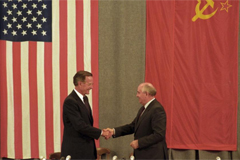 |
In the NewsOctober 29, 2014Put it in writingJoshua R. Itzkowitz ShifrinsonForeign AffairsDuring negotiations over German reunification in 1990, did the United States promise the Soviet Union that NATO would not expand into eastern Europe? The answer remains subject to heated debate. |
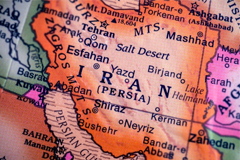 |
In the NewsSeptember 30, 20143 Qs: Jim Walsh on the elusive US-Iran nuclear treatyPeter DizikesMIT NewsCan the U.S. and Iran reach a permanent agreement to restrict Iran’s nuclear program? For several months, the countries have operated under an interim agreement limiting Iran’s activities, but it expires this fall. MIT News spoke with Jim Walsh, research associate in MIT’s Security Studies Program and expert in international security and nuclear nonproliferation, about the prospects for a deal. |
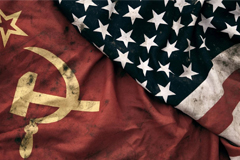 |
In the NewsAugust 19, 2014A farewell to armsAnne-Marie CorleyMIT Technology ReviewAs the Cold War ended, MIT researcher Thomas Neff came up with a plan to fuel U.S. nuclear plants with uranium from Russian bombs. With more than a decade of quiet diplomacy, he pulled it off. |
 |
In the NewsJuly 17, 2014Genetically engineering almost anythingTim De Chant and Eleanor NelsenNovaWhen it comes to genetic engineering, we’re amateurs. Sure, we’ve known about DNA’s structure for more than 60 years, we first sequenced every A, T, C, and G in our bodies more than a decade ago, and we’re becoming increasingly adept at modifying the genes of a growing number of organisms. But compared with what's coming next, all that will seem like child's play. |
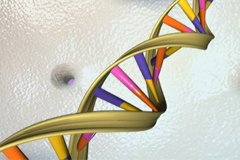 |
In the NewsJuly 17, 20143 Qs: Kenneth Oye on genetic engineeringPeter DizikesMIT NewsKenneth Oye, an associate professor of political science and engineering systems who studies government regulation and directs MIT’s Program on Emerging Technologies, is lead author of an article in Science today making the case that the U.S. government, and international groups, need to adapt their procedures to enable more robust discussion and evaluation on genetic engineering. MIT News asked him to discuss the topic. |
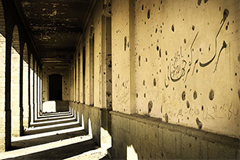 |
In the NewsJune 1, 2014Knowing the enemyAlec WorsnopWhat makes an insurgency effective and deadly? It is a question the U.S. has been posing with increasing urgency since 9/11, and it is a central research preoccupation of Alec Worsnop, a Ph.D. candidate in political science. |
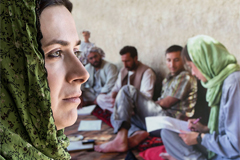 |
In the NewsMay 29, 2014From conflict, cooperationNicole Estvanik TaylorMIT SPECTRVMFor her recent book Alliance Formation in Civil Wars, political scientist, Fotini Christia interviewed Afghan warlords and mujahideen. Her “counterintuitive” finding was that alliances among warring factions were fluid, owing more to pragmatic power dynamics than to religious or ethnic identities. She discovered, however, that identity narratives were often retrofitted to justify shifts from foe to friend and back again. |
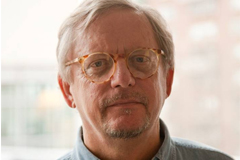 |
In the NewsMarch 20, 2014John Tirman on the warming US-Iran relationshipPeter DizikesMIT NewsThe U.S. and Iran have had a largely antagonistic relationship since the Iranian Revolution of 1979. Could that be changing? In January, Iran and a U.S.-led group of six global powers agreed to an interim six-month deal that freezes Iran’s nuclear weapons program, in exchange for the lifting of some economic sanctions. The progress on the issue indicates that U.S.-Iran difficulties are not wholly intractable, suggests John Tirman, a principal research scientist and executive director of MIT’s Center for International Studies. |


